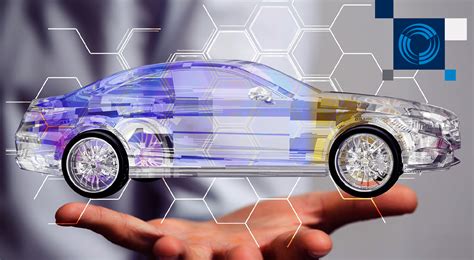The automotive industry has undergone significant transformations over the past century, with innovations revolutionizing the way vehicles are designed, manufactured, and used. Recent advancements in auto tech have transformed the industry, making vehicles safer, more efficient, and environmentally friendly. In this article, we will explore some of the latest auto tech innovations that are revolutionizing the automotive industry.

Electrification and Hybridization
One of the most significant trends in the automotive industry is the shift towards electrification and hybridization. Electric vehicles (EVs) and hybrid electric vehicles (HEVs) are becoming increasingly popular, driven by government regulations, environmental concerns, and advancements in battery technology.

The benefits of EVs and HEVs are numerous, including reduced greenhouse gas emissions, lower operating costs, and improved performance. Major automakers, such as Tesla, Toyota, and Volkswagen, are investing heavily in EV and HEV technology, with many models already available in the market.
Advantages of Electric Vehicles
- Zero tailpipe emissions
- Lower operating costs (electricity is generally cheaper than gasoline)
- Improved performance (electric motors provide instant torque)
- Reduced maintenance costs (fewer moving parts means less wear and tear)
Autonomous Driving and Safety Features
Autonomous driving and advanced safety features are another area of significant innovation in the automotive industry. Autonomous vehicles (AVs) use a combination of sensors, software, and hardware to navigate roads without human intervention.

Advanced safety features, such as lane departure warning systems, blind spot detection, and forward collision warning systems, are becoming increasingly common in modern vehicles.
Benefits of Autonomous Vehicles
- Improved safety (reduced risk of accidents caused by human error)
- Increased mobility (AVs can transport people with disabilities or elderly individuals)
- Enhanced productivity (passengers can use travel time for work or leisure)
- Reduced traffic congestion (AVs can optimize traffic flow and reduce congestion)
Connectivity and IoT Integration
The Internet of Things (IoT) is transforming the automotive industry, with vehicles becoming increasingly connected and integrated with other devices and systems.

Connected vehicles can communicate with other vehicles, infrastructure, and devices, enabling features such as vehicle-to-everything (V2X) communication, remote software updates, and real-time traffic updates.
Benefits of Connected Vehicles
- Improved safety (V2X communication can reduce accidents caused by human error)
- Enhanced convenience (remote software updates and real-time traffic updates)
- Increased productivity (passengers can use travel time for work or leisure)
- Reduced maintenance costs (predictive maintenance can reduce downtime)
Artificial Intelligence and Machine Learning
Artificial intelligence (AI) and machine learning (ML) are being used to improve various aspects of the automotive industry, including vehicle design, manufacturing, and maintenance.

AI and ML can be used to optimize vehicle design, predict maintenance needs, and improve manufacturing processes.
Benefits of AI and ML in Automotive
- Improved vehicle design (AI can optimize design for performance, safety, and efficiency)
- Reduced maintenance costs (predictive maintenance can reduce downtime)
- Increased efficiency (AI can optimize manufacturing processes)
- Enhanced safety (AI can improve vehicle safety features)





What is the future of electric vehicles?
+The future of electric vehicles is promising, with many countries investing heavily in EV infrastructure and technology. As battery technology improves and costs decrease, EVs are likely to become more mainstream.
Are autonomous vehicles safe?
+Autonomous vehicles have the potential to be safer than human-driven vehicles, as they can detect and respond to hazards more quickly and accurately. However, there are still concerns about the safety of AVs, particularly in complex environments.
How will AI and ML impact the automotive industry?
+AI and ML will have a significant impact on the automotive industry, improving vehicle design, manufacturing, and maintenance. AI and ML can also enhance vehicle safety features and improve the overall driving experience.
In conclusion, the automotive industry is undergoing a significant transformation, driven by innovations in electrification, autonomous driving, connectivity, and AI. As these technologies continue to evolve, we can expect to see significant improvements in vehicle safety, efficiency, and performance.
